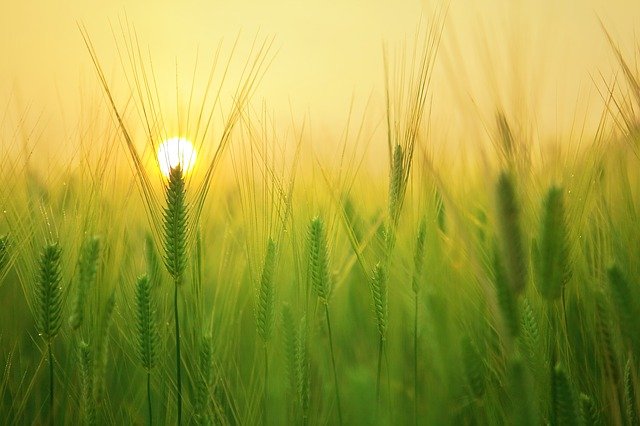What is Biodynamic Farming?
Biodynamic farming is a type of substitute agriculture that utilizes ecological and ethical methods for farming, production of food and gardening techniques. The conventional and traditional methods of agriculture disrupt the quality of the soil with time. The soil quality deteriorates due to grazing, crop production and nutrient deficiency. It helps in maintaining a healthy balance between the ecology and efficient use of our farms and garden and helps in increasing their productivity. It is a long-term approach to sustainable agriculture.
Also read: Biodynamic Farming Benefits and Importance for Environment
A farm must follow guidelines for breeding livestock, food production , greenhouse management for acquiring a biodynamic farm certificate. In 1924 some farmers raised issue on the deterioration of soil after the use of fertilizers and an Austrian philosopher Rudolf Steiner delivered a lecture on organic farming or the anthroposophic farming that presently is known as biodynamic faming. He explained the relationship between humans and their farms and also explained them about the relationship between humans and natural habitat. Another Germany based agronomist explained the methods of biodynamic farming.
Common Methods, Techniques and Technologies of Biodynamic Farming
-
COVER CROPS
These are the crops grown for the improvement of farming system. These crops are grown in rotations among the income producing crops. These crops can also be grown at the same time with other crops. They play an important role in the biodynamic farming. There is a vast variety of cover crops from which we can choose. These crops can have significant impacts on the properties of the soil. They can provide nitrogen, decrease the leaching of nutrients, decrease the erosion, attract valuable insects and decrease the effects of the pests. They can also provide extra income if grown for seeds or as an energy crop. With these benefits they can also provide with disadvantages such as cost of labor, delay in the crop plantation and host for diseases or insects.
-
COMPOSTING
Composting changes raw organic residue in to humus like compound with the help of microorganisms. It is easy to handle and store, does not contain odor, stable, and less in weight than raw wastes. Compost provides soil with organic matter. It increases the soil fertility, water retention, decreases the heavy metals bioavailability, decreases the diseases and improves soil conditions. An assembly of organic residues with proper moisture and oxygen is prepared. The microorganisms decompose all the matter and heat or temperature is increased so proper aeration is needed as aerobic conditions are more stable than anerobic conditions. Common types are static composting, windrow composting, in vessel composting and vermi composting.
Also learn more about: Hydroponics – The Future of Agriculture?
-
HOMEOPATHIC SPRAYS
Several liquid sprays that are made up of horn manure, silica and undergoing fermentation prepared by continuously stirring in water and sprayed onto soil or plants during growing period of the crops are used homeopathic sprays for the biodynamic faming. The stirring is done with small batches daily and sprayed on soil. It helps in improving the relationship among soil and the crops. Enhancing photosynthesis, and seed ripening.
Have a look at: What Is Agritech? – Importance and Methods of Agrotech
Advantages of Biodynamic Farming
- Biodynamic farming improves the property value by improving the soil quality and crop yield
- The cost is reduced as crops themselves produce natural feeds that are cheaper than fertilizers and chemical treatments and use of treatment only when needed.
- New crops are produced that are resistant to pests, susceptible to climatic changes, and immune to fungi
- It helps us in understanding the importance of microorganisms.
- The soil is healthy than before
- There is no waste generated
- Compost produces waste that is utilized in a healthy manner.
Also Read: What is Agroecology? Importance and Impact on Environment
Conclusion
Farmers have testimony that when they practice biodynamic farming quality soils are produced due to less exposure of chemicals, plants that are stronger and are more sustainable. Therefore it is necessary that more biodynamic farming practices are done in Pakistan. It is therefore necessary that more research and development on sustainable agriculture is done so that future generations can enjoy healthy and nutritious crops as compared to today as the crops that are produced are of less nutrient value and Pakistan ranks highly in countries with malnutrition.
Also check out: Sustainable Agriculture Practices and their Advantages
We hope you liked this post! Please comment below if you have any suggestions, comments or feedback! We at #envpk love hearing from readers! Thanks





1 Comment
Hello Zarwa, are there any biodynamic farms in PK?
Please get in touch with me.
Thanks